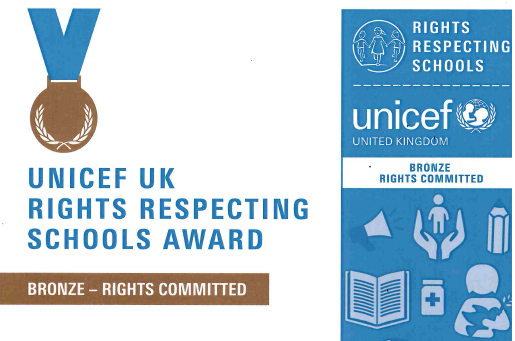We are a Rights Respecting School

St. John's has received the Bronze Award for Rights Respecting Schools.

What is a Rights Respecting School? A guide for parents and carers
The Rights Respecting School promotes the UN convention on the rights of the child. This is an integral part of St John's ethos and vision statement. RRS supports children in becoming global citizens and supports our belief that children achieve most when they feel included and valued.
We want children at St John's to learn about their rights and feel empowered about their education. We recognise that rights and responsibilities are equally balanced and encourage our children to take responsibility for their actions in order to develop an awareness of how they might affect the rights of others.The aim is to help children achieve their potential and become responsible citizens.
What are the key principles of the UN Convention on the Rights of the Child?
The UN convention consists of 54 articles in total, with each article referring to a right. UNICEF uses the UNCRC as a framework for its work for all the world’s children and has developed the Rights Respecting School Award (RRSA).
At St John's the children are learning many of the rights through their involvement with UNICEF and a Rights Respecting ethos, throughout the whole school.
The main rights they are learning are:
The right to an education;
The right to a home;
The right to know their rights;
The right to play;
The right to nutritious food;
The right to clean water;
What can parents and carers do to help their children?
Talk to your children about what rights they have.
Show your children how they can promote these rights at home.
Remind your children about the differences between wants and needs.
Allow your children to take on small responsibilities at home.
Watch the news with your children and talk about issues they may have seen or heard where the rights of others may have been violated.
Use the language of rights and responsibilities and discuss how you can promote these values at home.
Please click here to view our guide for parents and carers

